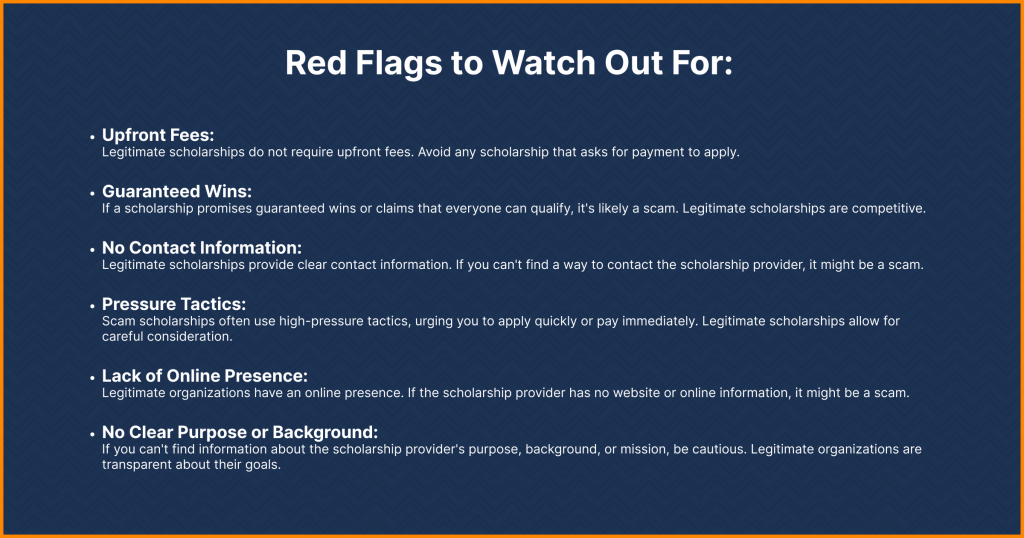One of the biggest challenges that comes with college is paying for tuition. College can be pretty expensive. So it’s no surprise that over 40 million borrowers have federal student loan debt. Not everyone is eligible for need-based financial aid. That’s why most students assume they can only take out loans to fund their higher education.
But there’s another way that many aren’t aware of. Merit-based scholarships can be your ticket to a potentially debt-free or less financially stressed college experience.
What is a Merit-Based Scholarship?
Merit-based financial aid is a form of financial assistance awarded to students based on their individual achievements and qualifications. This type of aid is designed to recognize and reward students for their exceptional academic, extracurricular, or personal accomplishments. This differs from need-based financial aid, which aims to help students with financial need pay for college.
Merit-based awards are typically in the form of scholarships or grants and are usually offered by colleges, universities, and certain private organizations as a way to attract and retain talented students.
A student’s outstanding academic, extracurricular, or other noteworthy achievements are considered while awarding merit-based scholarships.
Merit-based financial aid is usually based on a student’s academic performance. High school GPA, standardized test scores, and letters of recommendation are typically considered. However, it’s important to note that merit can extend beyond the classroom. Extracurricular activities, such as sports, music, or community service, can also help you secure merit-based aid.
Types of Merit-Based Scholarships
Merit-based scholarships come in various forms, each tailored to recognize specific accomplishments and qualities. Colleges and organizations may choose to offer merit-based scholarships to students at every step of their academic journey. This means that you could be eligible for merit scholarships at the time of enrollment, while actively pursuing a degree program, or even after graduation to help you pay off student loans. This differs with each institution and the awards they offer.

Here are some common types of merit-based scholarships, based on various eligibility criteria:
Academic Scholarships
These are awarded to students with outstanding academic records, typically based on high GPA and standardized test scores. A large number of institutional scholarships consider academic merit as the primary criterion for eligibility. Regent University’s Fred W. Beazly Scholarship is an example of such a scholarship.
Athletic Scholarships
Usually reserved for exceptional athletes who demonstrate prowess in sports. These scholarships are common in colleges and universities with competitive sports programs. Post University awards scholarships to student-athletes in various programs.
Leadership Scholarships
These awards are created to recognize students who have shown exemplary leadership skills and accomplishments in school or their community. If you have a proven record of commitment to your school or community or have served as head of student bodies, then it’s worth looking into leadership scholarships. Some employers also provide leadership scholarships, recognizing deserving employees who wish to pursue college education. For instance, Chick-fil-A Leadership Scholarships help eligible Chick-fil-A employees pay for college.
Fine Arts Scholarships
These awards are geared toward students with exceptional talents in areas such as music, visual arts, theater, and dance. If you have special skills in any of the fine arts or performing arts, you could be eligible for a number of scholarships. These usually require you to demonstrate your skills, usually through a contest or submission. Fine arts scholarships are often sponsored by local organizations, like the Franklin County Arts Guild Scholarship, offered by the Community Foundation of Middle Tennessee (CFMT).
Community Service Scholarships
Awarded to students who have made a significant impact on specific communities through volunteer work and community service. These merit awards are usually offered by local communities and non-profits. The Equitable Excellence Scholarship is one example of this, awarded to students who make significant contributions to their community through volunteer service.
Merit Scholarships for Specific Majors
Some institutions and professional bodies offer merit-based scholarships or grants to students pursuing specific majors or fields of study. For instance, students pursuing STEM or business majors may be eligible for certain merit scholarships at their college. Certain employers may also offer awards to employees who wish to further their education in specific areas. These scholarships may be awarded at the time of enrollment, or in your senior years after you’ve made satisfactory progress in your chosen major.
Besides colleges and universities, merit-based aid is often offered by professional associations, community organizations, employers, and even state governments. To get merit-based financial aid, you must first research these awards, learn their eligibility requirements, and do your best to meet them. Not all scholarships require rigorous work, and some may be awarded for niche hobbies, like the Minecraft Scholarship.
Certain merit awards also cater to specific minorities, recognizing deserving students from underrepresented communities. The APIA Scholarship is a prime example, awarded to Asian and Pacific Islander Americans who wish to pursue college degrees.
A few awards may also have eligibility criteria that combine merit and need-based factors. For instance, Keiser University offers sports scholarships to skilled athletes who also demonstrate financial need.
Merit-based awards often require you to write an essay or personal statement, or give an interview, and share a few documents–after you meet the eligibility requirements, of course.
How to Get a Merit-Based Scholarship
Securing merit-based scholarships is a process that involves finding, qualifying for, applying to, and retaining these awards. Breaking this process into steps makes it much easier to navigate.
Let’s look at how to work each step towards getting merit awards:
A. How to Find Merit-Based Scholarships
To get merit-based scholarships, start with an effective search strategy. By exploring various avenues, you increase your chances of finding scholarships that match your profile. Here are some steps to guide you in your search:
- Start Early
Initiate your scholarship search early, preferably during your junior year of high school, to access a broader range of opportunities with early application deadlines.
- Check with Colleges and Universities
Search for scholarship offerings directly from the institutions you plan to attend, as many colleges provide specific scholarships for outstanding students.
- Explore Local Opportunities
It’s worth reaching out to local community organizations, businesses, and foundations, as they often offer scholarships to support talent within the community.
- Refine Your Search Based on Your Interests
Many scholarships are offered by interest clubs and organizations. These are often not widely advertised, so they’re super underrated but can be a valuable resource to make college more affordable. Consider looking at organizations that cater to your specific interests—farming, robotics, design, etc. It’s also worth exploring opportunities through organizations like the Boy Scouts of America, National Honors Society, and similar institutions that you may be a part of.
- Review Eligibility Criteria
Thoroughly examine eligibility criteria for each scholarship to ensure you meet the requirements, optimizing your chances of success. This helps you focus on awards that match your profile.
You’ll find that scholarship hunting is much easier when you know what to look for. Know your strengths and get as much information as you can on the types of scholarships you may be eligible for.
B. How to Qualify for Merit-Based Scholarships
Positioning yourself as a strong candidate for merit-based scholarships often involves meeting specific qualifications and showcasing your unique strengths. Here are some tips that can help you stand out and qualify for more merit awards:
- Maintain Good Academic Standards
Focus on achieving and maintaining a strong academic record, as many merit scholarships consider factors like GPA and standardized test scores. Make sure to earn extra points in your best subjects or subjects you’re most interested in. This could help you get scholarships that cater specifically to those subjects.
- Showcase Extracurricular Achievements
Highlight your involvement in extracurricular activities, leadership roles, and any honors or awards you’ve received to demonstrate a well-rounded skill set. If you possess exceptional skills in areas such as athletics, music, or art, ensure they are well-documented to align with scholarships that recognize specific talents.
- Craft a Good Personal Statement
Write a compelling personal statement that effectively communicates your achievements, goals, and why you deserve the scholarship you’re pursuing.
C. How to Apply for Merit-Based Scholarships
After identifying potential scholarships and ensuring you meet the criteria, the next step is to submit a standout application. Following these steps will increase your chances of success:
- Read Instructions Carefully
Thoroughly read and follow the instructions provided for each scholarship, as requirements may vary.
- Gather Required Documents
Collect all necessary documents, including transcripts, letters of recommendation, and a well-crafted personal statement. (Many applicants don’t put enough effort into the last two of these, but they’re super-important and can help you stand out from the crowd).
- Submit a Polished Application
Present a well-organized and error-free application, ensuring that your essays effectively convey your accomplishments and aspirations.
- Meet Deadlines
Timely submission is crucial. Submit your application before the deadline to exhibit your commitment and responsibility.
Following these steps can help you find and secure merit scholarships, but it’s also important to maintain eligibility. Some awards are annual, and may require you to maintain satisfactory performance in academics, athletics, or extracurriculars. After earning a scholarship, you should make sure you’re aware of the terms and conditions, so that you know how to maintain eligibility and receive all the funding you’re entitled to.
Maximizing Merit-Based Financial Aid
Besides following this streamlined process to be more efficient, there are related steps you can take to make sure that your profile is optimally positioned for most scholarship opportunities.
Here’s what you can do:
Research Scholarship Opportunities
Start your search for merit-based scholarships that align with your achievements and interests–as early as possible. You could also consider exploring reputed scholarship search engines and academic advisors to potentially make the process smoother. But be wary of possible scams!

Highlight Your Accomplishments
When applying for merit-based scholarships, showcase your achievements and qualifications in your application. Your essays and personal statements should also demonstrate these achievements. Since merit-based aid is competitive, you’ll need to stand out from the crowd, and your accomplishments can help you do just that.
Seek Recommendations
Strong recommendation letters from teachers, mentors, or community leaders can bolster your scholarship applications. Request these letters well in advance to give your recommenders sufficient time to write thoughtful recommendations.
Apply Wisely
Applying for multiple scholarships can increase your chances of securing financial aid for college. But you should only do this after ensuring their legitimacy, and assessing the return on investment. Focus on the scholarships you’re definitely eligible for. Be diligent in meeting application deadlines and requirements.
Maintain Eligibility
If you receive renewable merit-based aid (i.e., aid that can be availed of for each academic year), be aware of the requirements for renewal. These could include maintaining a specific GPA, or submitting required information periodically. Ensure you continue to meet these criteria to secure continued funding throughout college. That’s also why reading your award letter is so important.
Stay Informed
Keep abreast of any updates or changes in scholarship opportunities. Sometimes, new scholarships become available, and existing ones may modify their criteria.
To Sum Up
Now that you’re aware that there are scholarships for academic performance, achievements, skills, community service, and more, it’s time to start working towards actually getting these scholarships.
Merit scholarships are an underrated form of financial aid. Now that you’re aware of them, and their various types, you’re better equipped for the road ahead.
This is as good a time as any to start searching for scholarships and aiming to be the most eligible candidate for all the ones you apply for!
Frequently Asked Questions (FAQs)
You can never be too early while applying for scholarships. Senior high is often ideal, since not many college scholarships are open to students younger than 14. The Federal Student Aid site recommends applying for scholarships during the summer between your junior and senior years. The deadlines for most scholarships align with college start dates, so applying any time between October and March would be optimal.
Yes! You can get scholarships to cover even online college degrees. Whether fully online or hybrid, it is possible to get scholarships that cover a significant part of your fees. There are several scholarships for online degrees that you can aim for.



